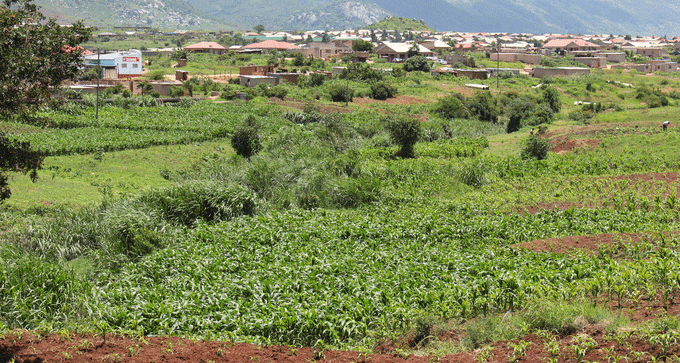
BY SILAS NKALA
The Bulawayo City Council (BCC) has complained that rampant illegal streambank cultivation is blocking the sewer system resulting in regular bursts that pose serious health risk to residents and costing the local authority millions of dollars in repairs.
Town clerk Christopher Dube on Friday, through a notice, advised residents to desist from cultivating on unauthorised places warning that their crops risk being destroyed.
“In terms of the Bulawayo (Protection of Lands and Natural Resources) By-laws Section 13 (1), no person shall cultivate within 30m of the verge of any spring vleis, sponge, march, swamp or reed bed or within 30m of the high flood level of any body or artificially conserved water or within ten metres along verges,” Dube said.
“Cultivators are requested to adhere to the above or risk having their crops destroyed. In terms of section 10 (4) of the by-laws, no compensation shall be paid by council in respect of any crops destroyed. Avoid disappointment and desist from illegal cultivation.”
Latest council minutes state that during a full council meeting, councillors expressed concern over the illegal farming activities in many city suburbs with some residents accused of digging across sewer systems.
Councillor Rodney Jele said that cultivation in prohibited areas such as streambanks, roadsides and intersections was alarming.
“Was there any public awareness being conducted?” Jele questioned at the same time proposing that relevant by-laws be enforced.
- Chamisa under fire over US$120K donation
- Mavhunga puts DeMbare into Chibuku quarterfinals
- Pension funds bet on Cabora Bassa oilfields
- Councils defy govt fire tender directive
Keep Reading
Councillor Sinikiwe Mutanda said illegal cultivation resulted in sewer and stream blockages.
“Residents were throwing rubble from their fields into the streams,” she said.
“Council by-laws have to be effected and offenders prosecuted. Slashing of the crops was therefore necessary. Markings of prohibited areas be must done. Public awareness meetings were not possible because of the Covid-19 regulations,” read the minutes.
However, there is a previous council resolution suspending slashing of crops due to past droughts.
Councillors were advised that in order to rescind the previous resolution, a detailed report must be submitted for consideration.










